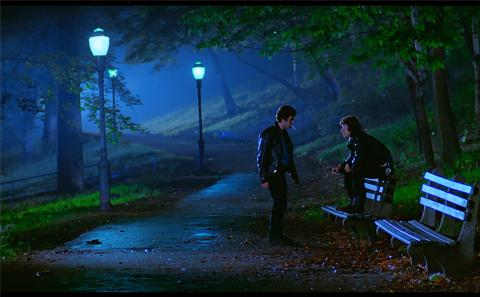Cruising (1980) and Windows (1980) at 40: Hollywood, History and Homophobia Seminar

- Time:
- 16:00 - 18:00
- Date:
- 18 February 2020
- Venue:
- Lecture Theatre C, Avenue Campus SO17 1BF
Event details
In association with LGBT History Month
'Does United Artists plan to double-bill William Friedkin's messily deplorable Cruising with Gordon Willis' exquisitely deplorable 'Windows' in their near second-run future? Their timing and loathsome tendentiousness make them uniquely compatible co-features' wrote one film critic in the Washington Post (Arnold 1980: 11). In the first quarter of 1980, United Artists released these two controversial films which were received as evidence of Hollywood's homophobia. Both Windows and Cruising marked their fortieth anniversary this year and were released just a month apart. In this talk, I will re-open the controversy through production histories, reception contexts, film analysis, and Hollywood's 'handling' of these two controversially and allegedly homophobic films.
Cruising was distributed by United Artists in February 1980 after nearly a year of protests and demonstrations throughout its 1979 location-shoot in New York. The film generated significant national controversy ahead of theatrical release, and this has become inseparable as the film's legacy. While the critical and commercial failure of Cruising is often pinned on the protests, politics, and textual incoherence, these were not the sole cause of failure and controversy. This paper will highlight overlooked areas of controversy in the 'Cruising story'. Namely, the contracts between United Artists, the national exhibition and theatre chains, the practice of blind-bidding, and the role of the MPAA. What can an industrial analysis of Cruising tell us about of homophobia and Hollywood's 'handling' of controversy beyond debates about representation?
Released in January of 1980 and filmed 'secretly' on closed sets following the trouble with Cruising, Windows controversy and accompanying protests have been mainly forgotten despite simultaneous coverage. The Lesbian Tide referred to Windows as 'the most vicious anti-lesbian film imaginable.' In effort equal to that of Cruising, demonstrations against Windows took place across the US co-organized between the National Association of Lesbian and Gay Filmmakers, Women Against Violence Against Women, and The National Gay Task Force. However, as lesbian magazine Amazon noted in its coverage, despite the significance of the demonstration, with demonstrators marching into screenings and shutting down the film, there was scant media coverage for 'dykes protesting.' In drawing attention to homophobic contiguity between United Artists' Cruising and Windows, this talk will also ask why Cruising has a particularly elevated status in queer film history while Windows remains obscure? Therefore, what do Windows protests and coverage tell us about the place of lesbophobia and the construction of canons and queer film histories?
Speaker information
Dr Gary Needham, University of Liverpool. Gary Needham is senior lecturer in film at the University of Liverpool. He has published widely on queer topics with a particular focus on North American film and television. He is the author of Brokeback Mountain (EUP 2010) and co-editor of Asian Cinemas (EUP 2006) Queer TV (Routledge 2009), Warhol in Ten Takes (2013), United Artists (2020), and the forthcoming Screening American Cinema (Routledge). Gary's recent publications include chapters on the films Midnight Cowboy (1969) and Cruising (1980) and he is currently writing a monograph on gay American independent film since 1965 titled Sex, Guys, and Videotape (EUP) and just finishing another on Andy Warhol's films starring Edie Sedgwick (Bloomsbury). Gary is also series co-editor of American Indies (EUP) and The Routledge Hollywood Centenary (Routledge).